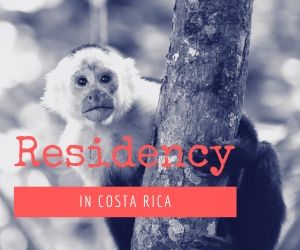Here as an interesting article on the subject. I read
www.counterpunch.com a lot to get my news. It doesn't tend to be as full of propaganda as other news sites and sources. Does have some radicals writing there at times though...
The Usurpers of Tegucigalpa
Honduras: a Coup With No Future
By VICTOR FIGUEROA-CLARK and PABLO NAVARRETE
Sunday’s overthrow of Honduran President Manuel Zelaya has vividly raised the spectre of Latin America ’s dark history: coups de etat and brutal military dictatorships. In a break with the past however, the region is speaking in unison, condemning the new dictatorship and calling for Zelaya to be reinstated as President. And significantly, the US government has joined its southern neighbours in rejecting the new dictatorship and recognising Zelaya as Honduras’ only legitimate president.
Regional bodies such as the OAS, the Rio Group, ALBA, Mercosur and UNASUR have also called for the restoration of the constitutionally elected president. Furthermore, Zelaya has received the support of the Inter American Human Rights Commission, and been invited to address the UN General Assembly “as soon as possible†by its President, Miguel D’Escoto. After this address Zelaya plans to return to Honduras , accompanied by Jose Miguel Insulza, the Secretary General of the OAS, and possibly other regional heads of state, with the aim of being reinstated as President.
The story behind the coup Honduras is a deeply unequal country, with the richest 10% of the population taking home 43.7% of the National Income. In contrast, the poorest 30% take just 7.4%, and just under 40% of the population live in poverty (defined as earning less than double the cost of the basic food basket). Only 4.7% of Hondurans have access to the internet, which might go some way to explaining the social background of Honduran coup cheerleaders on English-language websites such as the BBC’s.
Since coming to power in 2006 President Zelaya has gradually moved to the left, and at the time of the coup was taking steps to address Honduras ’ gross levels of inequality. Predictably, these moves earned him the enmity of much of Congress, whose ties to the country’s traditional elites run deep. Zelaya also angered the these elites by pursuing a leftist foreign policy, joining the Bolivarian Alternative for the Americas (ALBA), an alterative regional trade group composed of nine left-leaning Latin American and Caribbean countries. The arrival of Cuban doctors to provide healthcare to the poorest sectors of Honduran society, was met with particular hostility by Zelaya’s opponents.
Honduras’ leftward turn also undoubtedly caused significant discomfort among some in Washington , especially at a time when much of Latin America has seemed to move beyond the reach of US political influence.
The catalyst for the assault on the Presidential home by the Honduran armed forces, and the subsequent detention and expulsion of the President from the country was the non-binding consultative poll that was due to take place on Sunday (June 28th) on whether a referendum ought to be held on the convocation of a constituent assembly, alongside the Presidential election ballot in November 2010 (when Zelaya’s term ends). In other words, the coup was sparked by a non-binding vote intended to consult Hondurans on whether or not they wanted to be asked about a constitutional reform, and not because Zelaya wished to extend his term indefinitely, as has been widely reported in the mainstream international media.
This last point is one of several lies and misleading statements issued by the new dictatorship, which have been amply covered uncritically in the mainstream media. Another key one is that the coup is in fact a “constitutional transfer of powerâ€. This requires a bizarre leap in logic if we consider the facts of Zelaya’s overthrow: the President’s home was assaulted by the military; after 15 minutes of combat the President himself was kidnapped and bundled into a military aircraft in his pyjamas and flown into exile; his Ministers were detained and beaten, alongside the ambassadors of Cuba , Nicaragua and Venezuela.
While Honduras’ new and illegally installed “presidentâ€, Roberto Micheletti (the former leader of Congress), has declared that “80 or 90 percent of the population support what happened todayâ€, this is highly doubtful given the imposition of a curfew, the ongoing street demonstrations by Zelaya’s supporters, road blockades in the west of the country, and the general strike called for by social organisations and the trade union movement. However, as is the norm with coups against progressive leaders in Latin America , Micheletti has received expressions of support from the country’s business sector.
What remains to be seen is whether the Honduran military will be prepared to shed the blood of its countrymen to protect an illegal government with no visible international backing.
And here, as is also the norm with coups against progressive governments in Latin America, the words and actions of the US government, closely watched as ever, will be decisive. While the Obama administration has joined Latin America’s governments in condemning the coup the US ’ precise role in the days running up to the coup still remain unclear.
While there is little direct evidence of US interference in Honduras ’ coup, Eva Golinger has indicated certain similarities between the US-supported coup that briefly removed Hugo Chavez from power in Venezuela in 2002, and the current situation in Honduras . Gollinger points out that a New York Times article states that the US government was working for “several days†with the Honduran coup planners in order to “prevent†the coup. Given that Honduras is highly dependent on the US economy and that the Pentagon maintains a military base in the country, equipped with approximately 500 troops and numerous air force combat planes and helicopters, it would seem naïve not to believe that if the US government had expressed their firm opposition to the coup, it would never have occurred. Furthermore, the US’ track record of undermining and supporting and participating in the overthrow of democratically elected government in Latin America cannot be overlooked.
Regardless of the extent of US involvement in, or support for the coup, the US ’ position in the next couple of days will go a long way to determining whether its already precarious relationship with much of Latin America will deteriorate. The US has several options here: it can send a representative to accompany President Zelaya back to Honduras on Thursday, and it can threaten military, economic and political sanctions, all of which would have a strong effect on the usurpers of power in Tegucigalpa.
If Obama’s government wants to send a powerful message about the sincerity behind the US ’ rhetoric on liberty, democracy, and respect for the rule of law, it needs to accompany words with actions, and actively support the reinstatement of Honduras ’ legitimate president.










